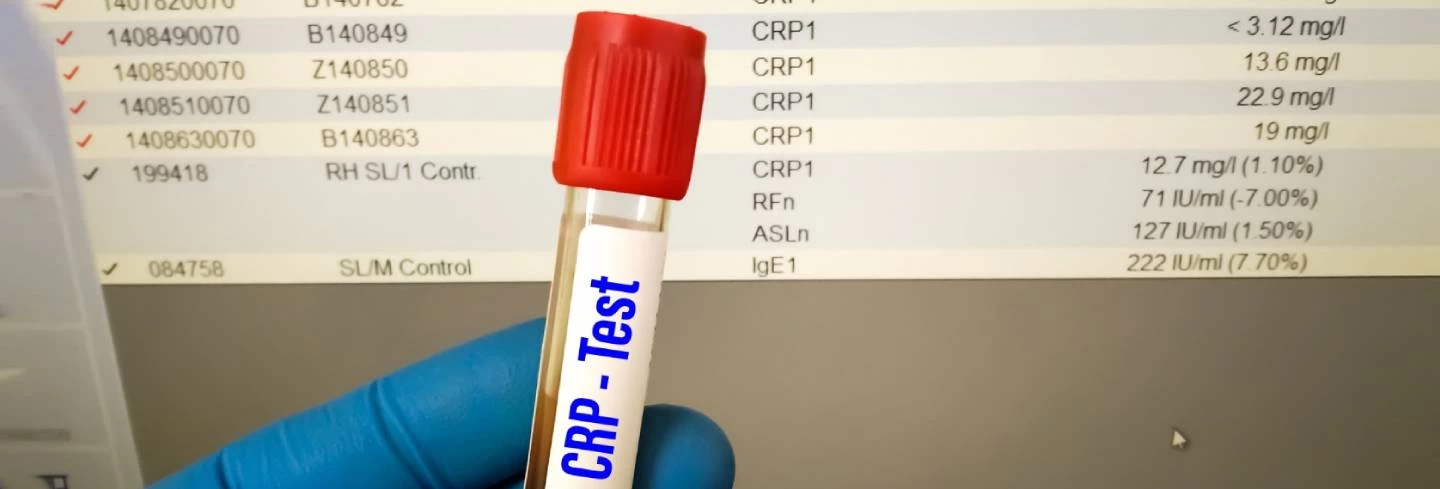- Email Us

When your body is fighting an infection or experiencing hidden inflammation, one of the earliest and most reliable indicators is a simple blood test: the CRP test. Often underestimated, this test can quietly alert doctors to potential health concerns even before symptoms fully show up.
In this blog, we break down what the CRP test really means, why it's often the first test ordered in cases of unexplained symptoms, how it's done, and what your results reveal. Whether you're dealing with a chronic condition, recovering from surgery, or just being proactive about your health, knowing your CRP levels gives you an early edge and peace of mind.
The CRP (C-reactive protein) is among the proteins synthesized when there is inflammation in the body. Blood work measures the level of the protein within the body. As this is a nonspecific marker, you do not have an idea of what is causing inflammation, but you are aware there is inflammation.
So, why is the CRP test done? Doctors typically use it to:
When CRP levels are elevated, it's a signal that something needs closer examination.
Inflammation is the body's natural response to injury or infection—but when it goes unchecked, it can lead to serious conditions. High CRP levels are often linked to:
Think of CRP as an early warning system—like the smoke detector of your body. It won't tell you what's burning, but it'll definitely tell you that something's wrong.
Knowing your CRP test normal range helps put your results into context:
It's worth noting that even slightly raised CRP levels may be concerning if you have other risk factors like heart disease. In such cases, doctors may order a high-sensitivity CRP test (hs-CRP) to assess cardiovascular risk more precisely.
The CRP test procedure is quick, simple, and doesn't require any special preparation. Here's what to expect:
You can resume your regular activities immediately after the test. At Mahajan Imaging & Labs, we ensure a seamless and safe testing experience using advanced equipment and highly trained staff.
If your CRP levels come back high, don't panic—it doesn't always mean something serious. But it does mean that your body is responding to something. Your doctor may recommend:
In many cases, a high CRP is temporary and resolves once the underlying issue is treated.
Your doctor may advise a CRP blood test if you experience:
It's also used to monitor patients with:
At Mahajan Imaging & Labs, we understand that behind every test is a person seeking answers. Our state-of-the-art labs ensure accurate CRP testing with quick turnaround times. Whether your doctor has advised a CRP test or you're proactively monitoring your health, we're here to help you every step of the way.
You can easily book your CRP blood test online or walk in at one of our many centers across Delhi NCR. Our diagnostic experts are trained to handle your sample with care, deliver results quickly, and support your medical journey with trust and professionalism.
The CRP test may be simple, but its insights are profound. It helps doctors detect invisible threats before they escalate. It helps patients track healing and monitor chronic diseases. And most importantly, it empowers you to take control of your health.
If you're feeling unwell without a clear reason or managing a known condition, talk to your doctor about getting a CRP test. It's a small step that could lead to big answers. And if you're looking for a hassle-free experience, Mahajan Imaging & Labs offers both walk-in testing and convenient home collection services, ensuring your health is never left on hold.
Take that step today—with the experts at Mahajan Imaging & Labs.
No, fasting is not necessary. You can eat and drink as usual before the test.
Yes, chronic stress may cause low-grade inflammation, potentially elevating CRP levels slightly.
The hs-CRP test is more sensitive and used mainly to assess heart disease risk. The standard CRP test is used to detect and monitor inflammation and infection.
That depends on your condition. People with chronic inflammatory diseases may need regular CRP monitoring, as advised by their physician.
Yes, if the cause of inflammation resolves—like a healed infection—CRP levels can return to normal naturally.
You can book your test with us through our website, WhatsApp, or by calling our customer care. For quick and easy booking, you can chat with us on WhatsApp at +91 88828 97661 or speak directly to our support team at +91 11 4118 3838. We offer both in-centre testing and home sample collection, ensuring flexibility and convenience based on your preference.




